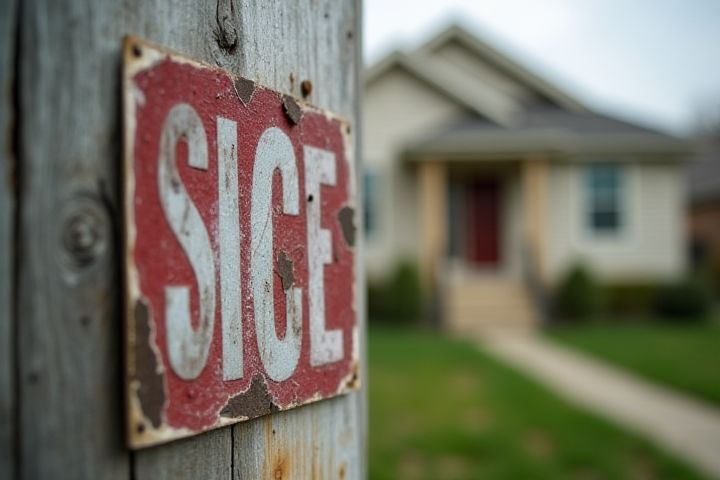
A house should be inspected before purchase to identify any structural issues, safety concerns, or necessary repairs that could affect your investment. Periodic inspections are also advisable to maintain the property's condition, generally every few years, to catch potential problems early. Following significant events, such as severe weather or natural disasters, a thorough inspection is essential to assess any damage. If you plan on making renovations or upgrades, having an inspection can provide valuable insights into the house's current state. Always ensure you hire a certified home inspector to guarantee a comprehensive evaluation and trustworthy results.
When Should A House Be Inspected
Before purchasing
A house should be inspected before purchasing to ensure its structural integrity and prevent costly repairs post-sale. This critical step allows you to identify potential issues such as plumbing leaks, electrical problems, or signs of pest infestations that can affect your investment. Obtaining a professional inspection gives you leverage in negotiations, potentially reducing the asking price or requesting necessary repairs. Engaging with an experienced home inspector can provide insights that guide your decision-making process, safeguarding your financial future.
Annually for maintenance
An annual home inspection is essential for maintaining the structural integrity and safety of your property. Regular inspections help identify potential issues, such as roof damage or plumbing leaks, that could lead to costly repairs if left unaddressed. On average, homeowners spend about $1,400 annually on repair and maintenance costs; preventive inspections can significantly reduce this expense. By prioritizing an annual check-up, you can enhance your home's value and ensure a safe living environment for you and your family.
Before major renovations
Before undertaking major renovations, it's essential to conduct a thorough house inspection to identify any underlying issues that could complicate your project. A pre-renovation inspection helps you uncover problems such as structural damage, outdated electrical systems, or plumbing issues that might not be visible at first glance, thus saving you time and money in the long run. You can expect to pay between $300 and $500 for a professional inspection, which can provide valuable insights and facilitate informed decision-making. Taking this step ensures your renovations align with local building codes and enhance the overall safety and longevity of your property.
Before selling
A house should be inspected before selling to identify any potential issues that could deter buyers or affect your asking price. This proactive measure typically occurs at least 3-6 months prior to listing, allowing ample time for necessary repairs and improvements. Approximately 85% of buyers seek a pre-purchase inspection, making it essential to provide reassurance about the property's condition. Addressing problems identified in the inspection can lead to a smoother sales process and increased buyer confidence.
After natural disasters
A house should be inspected immediately after a natural disaster, such as a hurricane, earthquake, or flood, to assess structural integrity and safety. Inspecting the property early can reveal hidden damages like roof leaks, foundation cracks, or electrical hazards that may compromise your family's safety. Homeowners should prioritize checking for signs of water intrusion, mold growth, and gas leaks, which can pose serious health risks. Engaging a qualified home inspector with experience in post-disaster evaluations will provide you with a comprehensive understanding of necessary repairs and any potential insurance claims.
When getting new insurance
A home inspection is essential when obtaining new insurance, as it helps determine the property's condition and identifies potential risks. Insurers often require this assessment to set accurate premiums and ensure coverage aligns with the home's value and potential liabilities. Scheduling an inspection before finalizing your insurance policy can prevent surprises in coverage limits or unexpected claims down the line. By addressing any issues beforehand, you can enhance your property's insurability and possibly lower your insurance costs.
When there are signs of damage
A house should be inspected promptly when there are visible signs of damage, such as cracks in the foundation, water stains on ceilings, or mold growth in corners. These indicators can signal underlying issues that may compromise the structural integrity and safety of your home. It's also crucial to address problems like drafty windows or doors, which may suggest insulation or air leakage concerns. Regular inspections after severe weather events, like storms or floods, can ensure any damage is detected early, preventing costly repairs later.
Before renting out property
A house should be inspected before renting out property to ensure it meets safety and habitability standards. A professional home inspection can uncover hidden issues, such as plumbing leaks, electrical faults, or structural concerns, which could cost you significant money if left unaddressed. The average cost of a home inspection ranges from $300 to $500, a small price to pay for peace of mind and potential savings. By investing in an inspection, you'll enhance tenant satisfaction and reduce the risk of costly repairs during the rental period.
During warranty periods
A house should be inspected during warranty periods, typically within the first year of ownership, to identify any construction defects or issues that require the builder's attention. This proactive approach allows you to leverage the warranty coverage for repairs related to workmanship, materials, and structural integrity. Schedule inspections at critical milestones, such as after major seasons or significant weather events, to ensure any damage is promptly addressed. Regular assessments during this timeframe can help maintain the value of your home and ensure long-term satisfaction with your investment.
When buying new construction
A house should be inspected before finalizing the purchase of new construction, ideally during the pre-drywall phase to assess structural integrity and compliance with building codes. A thorough inspection at this stage, typically conducted after framing but before walls are closed, can identify crucial issues such as electrical and plumbing installations. A final inspection should occur just before closing, ensuring everything meets your expectations and building standards. Engaging a professional inspector can provide peace of mind, safeguarding your investment in what could be your most significant financial commitment.
